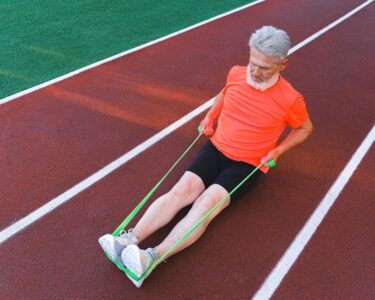In the highly competitive realm of athletics, the role of a sports nutritionist has become indispensable, guiding athletes to fuel their bodies for peak performance and recovery. It’s not merely about the calories; it’s about the right types of foods, at the right times, in the right quantities. Our understanding of sports nutrition and the science behind nutrition for sports has evolved significantly, enabling athletes to not just perform better, but also to enjoy prolonged careers with fewer injuries. This essential symbiosis between sports and nutrition underpins the success of athletes, irrespective of their discipline or level of competition.
In this article, we delve into the strategies that guide sports nutrition, including tailored diet plans for different sports, debunking common myths associated with nutrition in sports, and highlighting the pivotal role sports nutritionists play in an athlete’s success.
Whether you’re an aspiring athlete, a seasoned competitor, or a professional within the sports nutrition field, gaining insights into these areas can equip you with the knowledge to enhance performance substantially. The guidance of a sports nutritionist, coupled with a well-structured diet and understanding of nutrition for sports, can significantly impact an athlete’s performance, recovery, and overall health.
Sports Nutrition Strategies
Customized Nutrition Plans
We understand that every athlete is unique, with specific nutritional needs that vary based on their sport, training schedule, and personal health goals. Creating effective and realistic meal plans can help athletes feel supported and guided to make the right decisions for their health and wellness goals. Caloric intake can vary from person to person depending on activity levels, age, gender, and goals. For instance, women’s energy needs can range from 1,600-2,400 calories per day, whereas men can range from 2,000-3,000 calories per day, depending on activity levels and age. It’s crucial to tailor these plans to each athlete, ensuring they receive the right amount of macronutrients and hydration to support their performance and recovery.
Nutrient Timing
The timing of nutrient intake is pivotal for maximizing the benefits of training and improving recovery. The International Society of Sports Nutrition highlights the importance of methodical planning and eating of whole foods, fortified foods, and dietary supplements to enhance recovery, tissue repair, and muscle protein synthesis. For example, consuming carbohydrates during extended bouts of high-intensity exercise helps sustain performance and facilitates glycogen re-synthesis post-exercise. Additionally, protein intake is critical not only post-exercise but throughout the day to support muscle repair and growth. Ingesting essential amino acids or a protein bolus at strategic times can maximize muscle protein synthesis and aid in recovery.
Implementing these strategies effectively requires a clear understanding of an athlete’s specific needs and the demands of their sport. By focusing on customized nutrition plans and precise nutrient timing, athletes can achieve optimal performance and prolonged health.
Diet Plans for Different Sports
Endurance Sports
For endurance athletes, the focus is predominantly on carbohydrate intake to maintain essential glycogen stores, crucial for activities like long-distance running and cycling. The recommended daily carbohydrate intake can range from 5–12 g/kg of body weight, especially for those engaged in moderate to high-intensity training for over 12 hours per week.
It’s also vital to integrate protein, aiming for about 1.4 g/kg per day, to support muscle repair and growth. Healthy fats should not be overlooked as they provide sustained energy; about 30% of an endurance athlete’s diet should come from fats, focusing on sources like fatty fish, nuts, and avocados.
Strength Sports
Athletes involved in strength sports require diets rich in protein to support muscle hypertrophy and recovery. The nutritional focus for these athletes includes a higher intake of protein, approximately 1.2–2.0 g/kg of body weight per day, with emphasis on high-quality sources like lean meats and dairy products. Carbohydrates also play a significant role, providing the necessary energy for intense training sessions; intake should be about 55%–60% of total energy from carbohydrates. Additionally, strength athletes benefit from a moderate intake of fats, particularly monounsaturated and polyunsaturated fats, to support hormonal balance and overall health.
Team Sports
Team sports athletes require a balanced intake of carbohydrates, proteins, and fats to perform at their best. Carbohydrate-rich diets are essential for maintaining energy levels during games, while proteins are crucial for recovery and muscle maintenance. A typical diet for team sports athletes might consist of 55-60% carbohydrates, 15-20% proteins, and 20-30% fats. Hydration is also a critical aspect, with recommendations to drink electrolyte-rich fluids before, during, and after games to maintain optimal performance levels and prevent dehydration.
Common Myths in Sports Nutrition
Myth 1: Carbs are bad
There’s a common misconception that carbohydrates, especially simple sugars, are detrimental to health and performance. However, carbohydrates are the preferred source of energy for the body, crucial during both exercise and recovery phases. During physical activity, simple carbohydrates are quickly absorbed, providing immediate energy to muscles, which is essential for sustained performance. Post-exercise, these simple carbs play a critical role in recovery by raising insulin levels, which helps replenish glycogen stores swiftly. It’s important to understand that not all carbs are created equal. While it is beneficial to focus on complex carbohydrates for sustained energy, dismissing simple carbohydrates entirely ignores their beneficial roles in an athlete’s nutrition, especially during key moments like recovery.
Myth 2: More protein equals more muscle
The belief that consuming large amounts of protein will automatically lead to increased muscle mass is another widespread myth. While protein is indeed essential for muscle repair and growth, there is a limit to how much protein the body can use effectively for muscle synthesis. The recommended protein intake for athletes to support muscle repair and growth is about 1.2 to 2.0 grams per kilogram of body weight per day, depending on the intensity and duration of the training.
Consuming protein beyond these needs does not necessarily translate into more muscle mass but can instead lead to unnecessary calorie intake. It’s also crucial to distribute protein intake throughout the day to optimize its utilization and support ongoing muscle repair and growth.
Role of a Sports Nutritionist
Benefits of Consulting a Nutritionist
Working with a sports nutritionist offers a multitude of benefits tailored to enhance athletic performance and overall health. A sports nutritionist provides personalized dietary guidance and nutrition counseling to ensure that your intake of macronutrients and micronutrients is perfectly aligned with your training regimen and performance goals. This individualized approach helps in optimizing body composition, improving performance, and accelerating recovery and muscle repair.
One of the key roles of a sports nutritionist is to educate athletes on the importance of nutrient timing and meal structure, which are crucial for achieving peak performance and efficient recovery. Moreover, a sports nutritionist can help athletes avoid common nutritional pitfalls such as under- or overhydration by providing expert advice on fluid intake tailored to the athlete’s specific needs.
What to Expect From a Session
When you consult with a sports nutritionist, expect a comprehensive assessment of your dietary needs based on your sport, training schedule, and health goals. The session typically starts with a detailed discussion about your current diet, lifestyle, and any specific medical conditions or dietary restrictions you might have. This information is crucial for the nutritionist to develop a tailored nutrition plan that not only supports your athletic performance but also your overall well-being.
During the session, the nutritionist will also focus on educating you about the optimal balance of nutrients required to fuel your body for training and competitions, and how to manage your diet to prevent injuries and enhance recovery. The goal is to empower you with the knowledge to make informed food choices and develop healthy eating habits that will support your long-term athletic and health objectives.
By working closely with a sports nutritionist, you can expect to receive a personalized eating plan that addresses your unique nutritional needs, promotes healthy body functioning, and supports your athletic performance, making every training session more effective.
Conclusion
Throughout this article, we’ve traversed the expansive terrain of sports nutrition, emphasizing the profound impact of personalized diet plans, nutrient timing, and debunking widely held myths on an athlete’s performance and recovery. It’s clear that the science of sports nutrition offers crucial insights and practical strategies for athletes aiming to optimize their performance, underscored by the pivotal role that sports nutritionists play in tailoring these plans to individual needs. The journey through tailored nutrition plans, the critical timing of nutrient intake, and the importance of macronutrients has laid a comprehensive foundation for athletes and sports enthusiasts to understand how to fuel their bodies effectively.
In summarizing our exploration, it’s evident that the relationship between an athlete’s diet and their performance is intricate and nuanced, demanding a bespoke approach that considers the unique demands of their sport and individual physiological needs. The debunking of common nutrition myths further illuminates the path towards adopting a scientifically-backed approach to nutrition that enhances performance and fosters long-term health.
As we conclude, the message is clear: embracing the principles of sports nutrition under the guidance of a qualified sports nutritionist can not only elevate an athlete’s performance but also significantly contribute to their overall wellbeing and career longevity, marking nutrition as a cornerstone of athletic success.
1. Why is nutrition important for athletes?
Answer: Nutrition is crucial for athletes because it directly impacts performance, recovery, and overall health. Proper nutrition ensures that athletes have the energy needed for training and competitions, supports muscle repair and growth, and helps maintain optimal body composition. Additionally, good nutrition can prevent injuries and illnesses, contributing to a longer and healthier athletic career.
2. What are the key components of a balanced diet for athletes?
Answer: A balanced diet for athletes should include:
- Carbohydrates: The primary source of energy, especially important for endurance and high-intensity sports.
- Proteins: Essential for muscle repair and growth. The recommended intake varies but generally ranges from 1.2 to 2.0 grams per kilogram of body weight per day.
- Fats: Provide long-lasting energy and are important for hormone production and overall health.
- Vitamins and Minerals: Crucial for various bodily functions, including energy production, bone health, and immune function.
- Hydration: Adequate fluid intake is vital to prevent dehydration and maintain performance.
3. How does nutrient timing affect athletic performance?
Answer: Nutrient timing refers to consuming nutrients at specific times to maximize their benefits. For athletes, this includes:
- Pre-workout meals: Consuming carbohydrates and some protein about 2-3 hours before exercise can provide energy and prevent muscle breakdown.
- During exercise: For long-duration activities, consuming carbohydrates can help maintain energy levels.
- Post-workout meals: A combination of protein and carbohydrates within 30 minutes to 2 hours after exercise helps replenish glycogen stores and supports muscle repair and growth. Effective nutrient timing can enhance performance, speed up recovery, and reduce muscle soreness.




